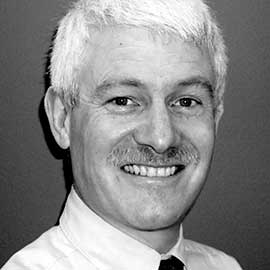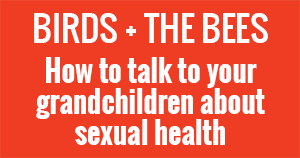Shalom JSA Chaverim!!
Kol Hakavod..’Team JSA Spring Forum’… Please take a bow..and another one! WOW! Another winner ..by acclamation!
Sunday afternoon’s Spring Forum was an exceptional showcase of Super Seniors who worked as a team to bring a superb and unusual program enticingly called “Sex and the City” to our community. I thank the undaunted thinking of Vita Kolodny, Serge Haber and the forum committee for their courage and hard work to carry this endeavour onto fruition—along with dedicated hours put in by Karon and Rita.
Speakers

Dr. Pega Ren, MPH, EdD (IASHS)
Sex therapist and family relationship counsellor in Vancouver since 1988. Author of upcoming book Boomed: Smart Sex Talk for Baby Boomers. She’ll explain what to expect socially and sexually on our journey through midlife and beyond with humour and knowledge from up-to-the-minute research.

Dr. Larry Goldenberg, CM, OBC,
MD, FRCSA, FACS. FCAHS, DABU
Prof. and Head of Dept. of Urologic Sciences at UBC, clinical scientist and urologic surgeon with interest in prostate cancer research and general men’s health issues. Author of a book for the lay person, Prostate Cancer, All You Need to Know to Take an Active Part in Your Treatment.

Dr. Mel Krajden, MD, FRCP(C)
Medical Director of BC Hepatitis Services, BC Centre for Disease Control; Associate MD, Laboratory Services; MD, Public Health Serology and Program Head of Virology at Prov. Health Services Authority Laboratory. Prof. of Pathology and Laboratory Medicine at UBC.

Meg Hickling, CM, OBC, LL.D.(H.C.)
As a registered nurse, Meg taught sexual health for over 30 years. She is an outstanding educator and author. Her ability to convey difficult material with sensitivity, gentle humour and warmth distinguishes her as a remarkable teacher, author, and role model.
The clever and congenial MC Stephen Kaplan opened our Forum relaxed us with a few easy senior bits. The afternoon began with our Keynote speaker Dr.Pega Ren who led us through a topic usually discussed in private or in whispers amongst good friends…but which now was being openly voiced and which rapidly became a source of fun and laughter.
Everywhere I looked, I saw faces nodding in agreement with a responsive smile acknowledging or identifying with a point being made. Condoms flew through the air..helped along by Marian Cohen, whose husband, Len, thought this matter of conveyance was particularly hilarious. This presentation elicited much laughter, further relaxing the mixed crowd easing us through heretofore matters privately broached.
We then broke into three concurrent sessions led by 1) Dr. Larry Goldenberg..on Men’s Health..who was introduced by our Chairman Serge Haber who mentioned Dr. Goldenberg’s davening prowess as well . Dr Goldenberg’s presentation was very informative and enjoyable, according to my husband, Herb who attended this session.
2) Dr. Mel Krajden, spoke on Safe Sex: “Are STI’s Still an Issue?” This, too, was well attended and very interesting, as reported by Edith Shier who was present at this session.
I chose to attend the lecture by Meg Hickling on the ‘Birds and the Bees ‘or ‘How to talk to your grandchildren about sexual health’. She was beautifully introduced by Jennie Virtue in a comprehensive fashion and then Meg Hickling proceeded in captivating us immediately with her easy chatty style. It was fascinating to learn that children’s questions were similar the world over, as we listened to her comparisons between children here, ages 3-8 and in Japan. However some of their reactions to answers were dissimilar. We all learned to say ’Scientific’ Vocabulary citing our anatomical parts..rather than saying ‘POLITE’ words.
We then returned to the main auditorium for a grand finale…more fabulous prizes , refreshments and more magic..because I felt that our JSA team had performed its own kind of magic..as we even had magic canes by Debbie Havusha and her team..so magic continued to float in the air.
Stephen Kaplan truly astounded and entertained us with his actual clever and creative feats of magic…along with his calm relaxed manner in being able to incorporate anything tossed his way.
The sponsors, the venue of BI and Melody…the servers…the delicious refreshments, by Bagel Club Catering …all shining stars …all combined to make the Spring Forum the sparkling success that it was!
We definitely came away healthier in mind.

He has been honoured as an Officer of the Order of BC and the Order of Canada for his work in public health
Dr. Larry Goldenberg presented a thought-provoking lecture highlighting the need for both government and the male population to pay more attention to this vital issue. There is significantly more support for women’s health issues, possibly because of the focus on their exclusivity in terms of child-bearing and the need to pay more attention to regular check-ups and maintenance of healthy lifestyles, whilst men tend to ignore the very issues which impact significantly on their projected life-span and quality of life during their senior years. The innate male tendency of recklessness, leads to neglect of correct eating habits, smoking and lack of exercise, makes them more vulnerable to cardiac failure, accidents, and other diseases. The consequence of this relative early decease of men is that 50% of women tend to be widowed by the age of 65.
Interestingly, there are only 3 Chairs in men’s health in world universities, whilst the figure for women’s health is almost 300.
The male “macho” image and ignorance of vital male health issues are contribute to their lower average life-span and higher mortality rate. The average life expectancy in Canada is currently 78.3 years for men and 82.9 for women, and the “big 3” contributors to potential years of life lost are heart diseases, motor vehicle accidents, and suicide. Interestingly enough NOT prostate cancer, which takes men’s lives at an older age and does not decrease average life expectancy. Whilst women tend to attempt suicide more frequently than men, the latter are generally more successful and don’t “mess around” once they have decided on a course of action. Regarding arterial diseases, Dr. Goldenberg mentioned that all critical diseases start with poor blood vessel lining, which impacts all systems, not only the heart. Men tend to ignore the need for regular check-ups and a sobering thought is that heart attacks in younger males are generally more terminal than in females.
A vital contributor to men’s normal health is the hormone testosterone, which, when diminished, leads to loss of libido, decreased sexual abilities, increased cardiac risk and uncontrolled fat distribution and weakened muscles, which effectively reduce a male’s potential life-span. This is an issue of concern affecting a million Canadian men over the age of 40, but currently only 5% of men with low testosterone are being treated. In the question and answer session at the end, Dr Goldenberg confirmed that the very treatment which counters the impact of advanced prostate cancer, reducing the testosterone level, has widespread negative impacts on the rest of the body which must be carefully monitored.
An interesting observation was that men are indeed vulnerable to afflictions which are typically associated with females, such as osteoporosis, and illustrated this with graphic illustrations of well-known personalities who suffered from these diseases. Current stats indicate that whilst 1 in 4 Canadian women suffer from osteoporosis, the figure for men is 1 in 8.
Dr. Goldenberg brought out the importance of young men having to be made aware of family history in terms of their risk of cardiac, cancer and smoking-induced diseases. Young men tend to dismiss all these factors as not important and adopt the attitude that there is plenty of time to worry about these issues. By the time they’re into their late 40’s and 50’s it might be too late as their lifelong habits are well entrenched.
Dr. Goldenberg highlighted the importance and ease of testicular self-examination in young adult males who represent the highest risk group for cancer of this organ.
By paying attention to simple precautionary measures such as living a healthy life-style, eating correctly, doing moderate exercise, giving up smoking and conducting regular self-examinations whilst in the shower, a male could potentially extend his useful life span by ten years.
How does one get the message out? Dr. Goldenberg indicated that social networking sites such as YouTube, Twitter, Facebook as well as websites could be a positive influence. He mentioned two appropriate websites, www.manupcanada.ca for teens and young adults, and www.aboutmen.ca for more detailed information.
What precautions should men over 40 take? Dr. Goldenberg recommended monitoring PSA and DRE levels, blood pressure, colonoscopy, bone mineral density, and consulting regular risk calculator sites on the web.
Reviewed by STAN SHEAR

As part of our Sex and the City Symposium, on March 27th, 2011 we were honoured to have Mel Krajden, M.D. FRCP(C) provide an overview of Sexually Transmitted Infections in people over 50.
His presentation had three major messages: Firstly, sexually transmitted infections (STIs) don’t care about whether or not the person has greying hair or wrinkles. So just because people are relieved that contraception is no longer an issue, it is important that they consider using condoms when they engage in sexual contact with new partners to reduce their risk of getting or transmitting a STI. The second point is that there are many STIs, such as Chlamydia, Gonorrhoea, Syphilis, human papilloma virus, herpes simplex virus, HIV and hepatitis A, B, C, etc., which can be transmitted through sexual contact.
Depending on the type of STI agent, it can take as little as a few days to a few months after exposure to become ill and some STIs may not even cause symptoms. So if you are engaging in risk activities it is important to get tested for STIs and to be treated to prevent transmitting infections to others. The third point is that there are effective vaccines to prevent hepatitis A and B infections, so for persons, especially those who plan to travel, getting immunized for hepatitis A and B is a good idea.
Other points that were brought up at the presentation was that human papilloma virus has now been associated with virtually all cervical cancers and about two thirds of head and neck cancers as well as genital warts. While most middle aged individuals have already been infected with human papilloma viruses, there is still a chance that a new partner can transmit this group of viruses. Similarly those infected with herpes simplex type 1 can still be infected with another type of herpes virus e.g. herpes simplex type 2 and vice versa. Lastly although there is no cure for HIV infection, treatment has become very effective and a single combination pill can now control most HIV infections and reduce the risk of transmitting HIV to your partner.
PRACTICE SAFE SEX – Prevent what is preventable and obtain early diagnosis so that early treatment can reduce the risk of transmission!
Reviewed by EDITH SHIER

Meg Hickling, discussed the importance of talking frankly to children about sex and sexual health. Her ability to address the issues of sex and sexual health with sensitivity, humour and warmth makes her an outstanding teacher and role model. She has been honoured as an Officer of the Order of BC and the Order of Canada for her work in public health Meg, a sexual health educator for more than twenty-five years and the author of several books written for both children and adults, says it’s never too early to start talking to your children about sex. Her runaway bestseller Speaking of Sex: What Your Children Need to Know and When They Need to Know It, has become the resource for parents wishing to teach their children about sex. She has also written Grown Up Sex, a book for adults.
She says that people often say they don’t want to talk to their children about sex because they want them to remain innocent. But nothing destroys the innocence of childhood like sexual abuse.
Children between the ages of 8 and 14 years are most likely to be sexually abused since they are often embarrassed talking about sex. Talking to your children from an early age about sexual health is the best way to make them abuse resistant.
Meg says it’s up to us to help our children be comfortable with their bodies and themselves and we must keep open the lines of communication as they grow and become sexually mature adults.


